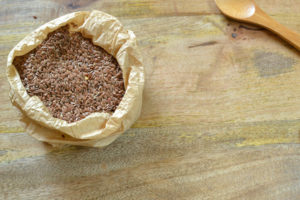Balancing your hormones naturally
Nutrition plays an important role in balancing your hormones naturally. When our hormones are out of balance, this can lead to problems such as pre-menstrual syndrome (PMS), irregular, painful or heavy periods, difficulties getting pregnant and a myriad of menopausal symptoms. At every stage in your life, supporting your hormonal balance through simple dietary and lifestyle changes could help to reduce the effects of hormonal changes.
Top Tips:
1. Reduce sugar and refined carbohydrates
Ensuring that you are providing slow sustained energy from complex carbohydrates (brown bread, brown rice/ pasta, fruit or vegetables) helps to reduce stress and the production of the hormone cortisol. Increases in cortisol production have been associated with PMS and menopausal symptoms. Eat small portions of complex carbs with each meal and avoid added sugar. Though sometimes our hormones make us feel like reaching for chocolate, trying to start each day with a healthy breakfast and keeping up regular balanced snacks will help us to avoid this.
2. Limit caffeine
Caffeine is a stimulant and while one cup of tea or coffee per day should cause no problem for most, relying on caffeine to keep you going during the day can be a source of stress on the body. Caffeine is a major trigger for hot flushes and night sweats during the menopause and in our experience, some women find that reducing or omitting caffeine is the single biggest step in improving menopausal symptoms.
3. Include phytoestrogens
Phytoestrogens are plant-based chemicals that act on oestrogen receptors in the body. They have a balancing effect, where they can reduce the negative effects of oestrogen in the breast tissue for example but increase the beneficial effects of oestrogen on your brain and bone. This can improve symptoms such as low mood, headache and irritability. They can also block the act of excess oestrogens so commonly found in our environment now, such as in plastics and some personal products. Phytoestrogens are found in tofu, pulses and flaxseeds and we recommend aiming for at least one portion of pulses per day (beans, lentils, chickpeas) – but start slowly so your digestive system can adapt!
4. Magnesium
Known as ‘nature’s tranquiliser’, magnesium is important in managing symptoms such as anxiety, low mood and irritability, as well as menstrual migraines. When we carry out blood tests in clinic, magnesium is our most commonly identified deficiency. Food sources include nuts and seeds which we recommend including on a daily basis. Other sources include pulses, fish and dark green leafy vegetables. If supplementing, use an organic form such as magnesium citrate and not magnesium oxide which is poorly absorbed.
5. B vitamins
Women with PMS have been shown to have lower levels of B vitamins than non-sufferers. Vitamin B6 is particularly beneficial and can help support progesterone levels and reduce PMS symptoms. Sources include tuna and salmon, spinach, cabbages, cauliflower and peppers. If you are supplementing with B6, we recommend taking it in the form of pyridoxal-5-phosphate rather than having to convert pyridoxine in the body. However, the B vitamins usually act in synergy so taking a B complex that also contains other B vitamins and folic acid will have the most benefit.
If you would like more information on our healthy eating courses, tests, or how we can help you in clinic, please call us on 01 4020777 or email info@glenvillenutrition.ie


